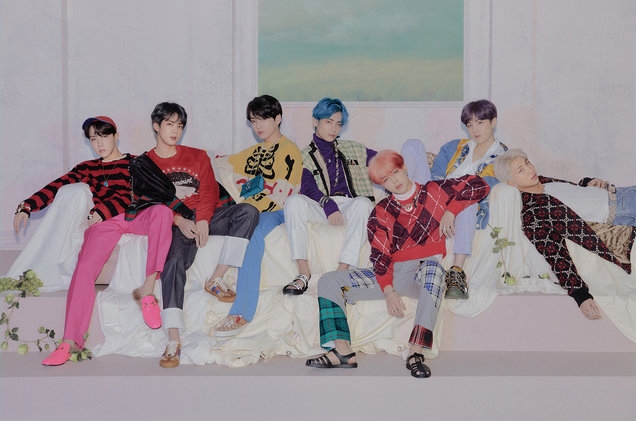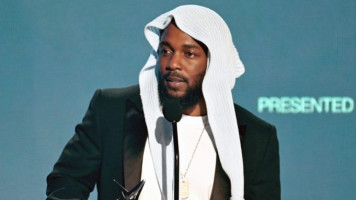A slew of distinguished guests spoke excitedly about the pop culture being exported from South Korea while gaining insight on what made an artist like BTS reach a global scale of influence at the first-ever ASEAN-ROK Culture Innovation Summit.
Held in Korea's southern city of Busan, Billboard was in attendance at the forum opened with remarks from the country's president Moon Jae-In. Korea's leader emphasized the growth of not only in his country (with cultural exports boasting 16-percent average annual growth for the past five years), but also the 10 nations who make up the Association of Southeast Asian Nations (or ASEAN featuring Indonesia, Thailand, Myanmar, Laos, Brunei, Cambodia, Malaysia, Singapore, Vietnam and the Philippines), citing an annual growth rate of eight percent for its content markets. Moon thanked the ASEAN countries for being some of the first to recognize and support Korean-culture exports.
Seated next to Moon in audience was Bang Si-Hyuk, the CEO and founder of Big Hit Entertainment that houses BTS and Tomorrow X Together, who walked on stage after the president to give his keynote presentation. Bang began by showing a live concert performance of BTS' Hot 100 hit "Idol," before the 47-year-old shared his experiences, insights and unique "vision for content," humbly summing up his life work as a "content producer."
Throughout the 10-minute talk, Bang shared his perspective on "outstanding content we can acknowledge" today in what he continuously called the fourth industrial revolution, referring to modern-day world of developing and disruptive tech, where "technology changes people and lifestyles." He referenced the star-studded 1985 Live Aid concert, which reached a reported 1.9 billion viewers across 150 countries and earned millions in famine relief for Africa, as a means to "spread love for mankind through music." He emphasized how such a production would not have been possible were it not for satellite technology with "Live Aid proving the value of live broadcasts through satellite."
Connecting to today, Bang spoke about how millions can access music at their fingertips which helped leverage a group like BTS. "The experience of global citizens watching the same performance at the same time has been transformed now to one where we communicate real time with anyone around the world, in our palms, through various channels," Bang said (with English provided in real-time from an on-site translator). "We exchange the same contents, sensations and enthusiasm. Through that very same technology, BTS, which came from a small production company here in a country in eastern Asia, has resonated with the world. Global audiences have become fanatical about the music videos where Korean singers sing in Korean language and dance. Globally, the lyrics, dialogues and messages of BTS are translated and shared worldwide, which has made BTS into The Beatles of the YouTube generation and a hero at the periphery. Conversely, the success of BTS has proved the existence and value of YouTube technology."
Bang honed in on strong content as the reason to why LiveAid was such a success and why BTS has risen above their pop contemporaries. "LiveAid and BTS are from different times, and have different subject matter, but they are both good contents," he continued. "It's because they carry evocative and bold messages towards the era and the generation...all contents are forms of expression, what's important is how universal it can ring."
Bang also included the importance of investing in creators, but emphasized those must have a statement that speaks to a particular era, is contemporary, and brings a level of enthusiasm to their followers. "Investing is such people is investing into tomorrow's cultural contents," he added, hinting that he's already looking to see what other platforms beyond will influence future generations beyond YouTube. "We need to invest in people who will prove the value of new technologies moving forward."
Other top-level speakers followed Bang's presentation including Netflix CEO Reed Hastings (who announced a new partnership between the streaming service and Korean broadcast network JTBC for dramas and television shows) and Myanmar state counselor Aung San Suu Kyi (who highlighted Project K, a local boy band created in the style of a K-pop group, and counts her excellency as a fan).
The summit closed with a presentation from Brain Chow, founder and CEO of iMe Group which has spent the last eight years pushing K-pop concerts into foreign markets. Chow shared insights on how the K-pop scene has increased into what he called a "mainstream stage" in countries like Malaysia, Taiwan and the Philippines, while in the "expansion stage" in many western countries like the United States, Australia, Brazil and U.K. Only two countries, Japan and China, were counted as seeing a decreasing following in K-pop.
The CEO also shared analytics from the past year on YouTube, citing "global YouTube traffic of K-pop idol videos reached 26.5 billion [views]" with 89.1 percent of viewers coming from outside of Korea during the studied period of July 1, 2018 through June 30, 2019. When it came to the consumption of K-pop by country on the platform, Korea ranked first with 10.1 percent of the global views, with Indonesia just behind at 9.9 percent and the United States ranked fourth in K-pop's YouTube consumption with 7.4 percent of the views. The top 20 most-viewed K-pop artists on YouTube were led by BTS, and followed by BLACKPINK, TWICE, MOMOLAND, EXO and 15 more artists made up mostly of boy bands and girl groups minus solo singers PSY and IU.





